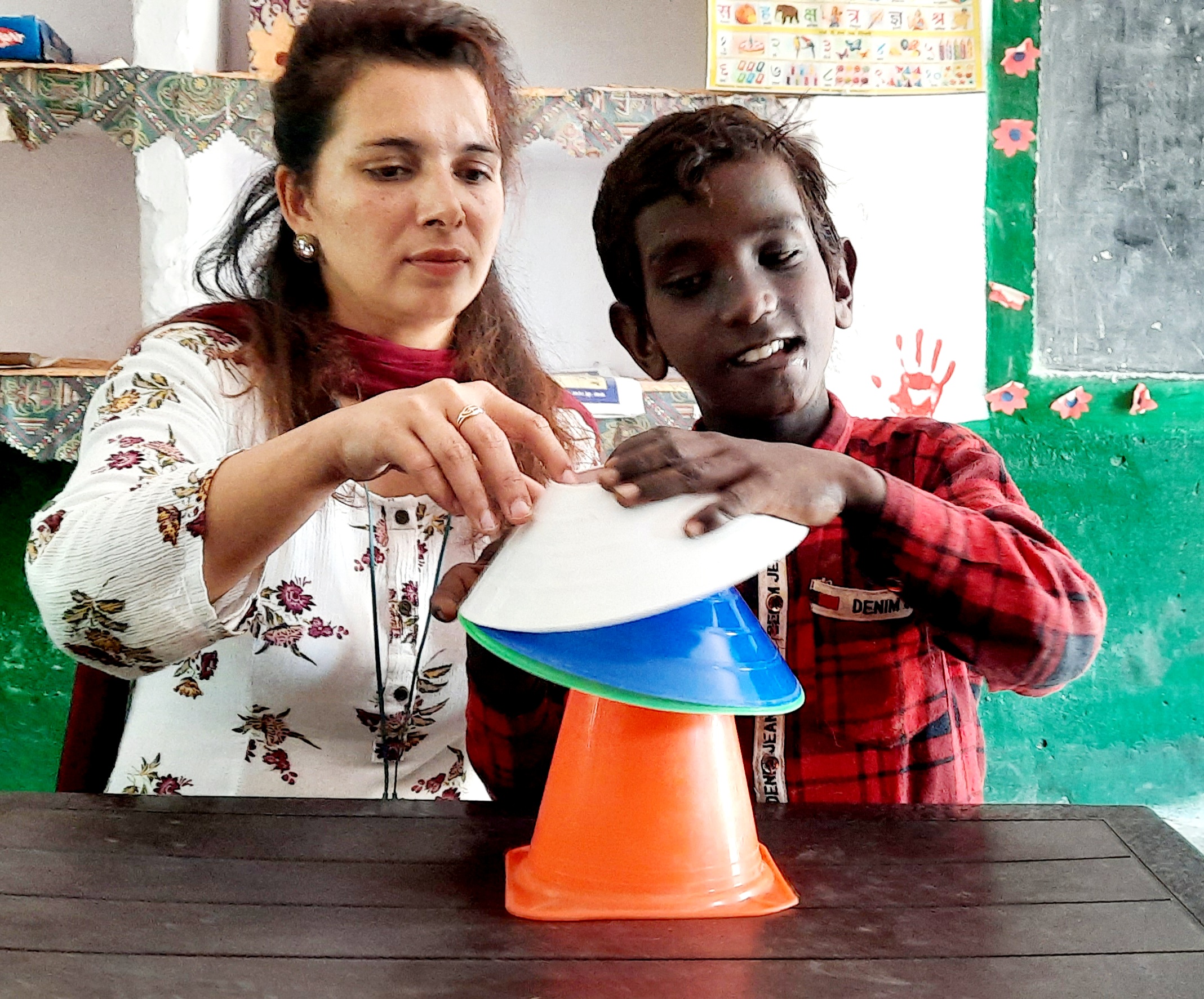
Enabling the differently abled: The story of Deepmala Pandey
As parents of differentially abled, people from rural areas are naturally apprehensive about how the world treats their children. Ms. Deepmala ensured this did not come in her way of making education accessible to all. She and her team counseled parents who hesitate to send their children to school.
We all cherish a yellow lily booming in a pot filled with red roses. It is because the mere existence of diversity is what makes our world a beautiful place to be; it is what we humans thrive on. And finally, it is because strength lies as much in differences as in similarity. With a vision that surpasses the conventional, Ms. Deepmala Pandey celebrates diversity beyond the realms of color, caste, creed, and gender.
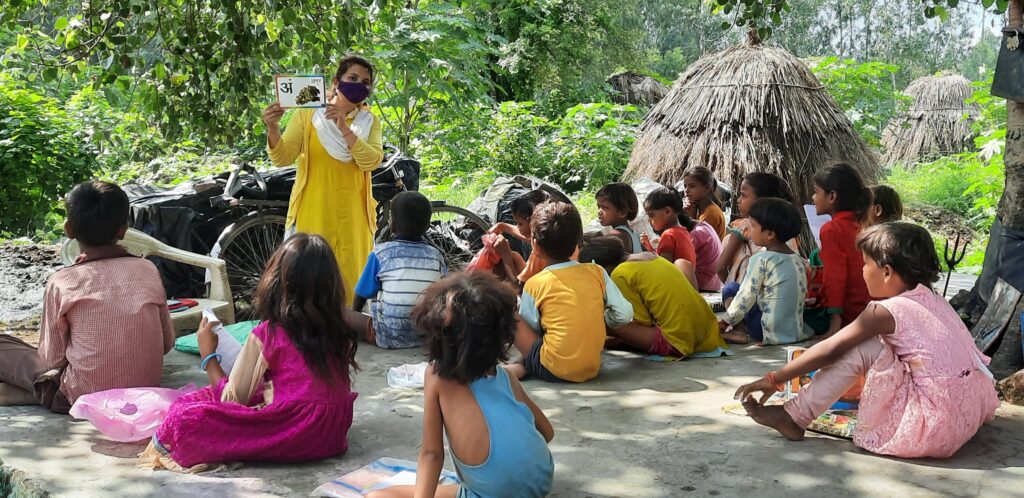
“If a child can’t learn the way we teach, we should teach the way they learn.” Pandey undoubtedly lives by the infamous quote. Inclined to connect with kids from the beginning, she is currently the principal of a primary-level government school in Dabhaura Gangapur village of Bareilly. In 2017, she pursued formal training in inclusive education affiliated with NCERT, Lucknow. Little did she know that it was only the beginning of a ground-breaking revolution that she was about to bring.
According to her, including a special section of society in the education sphere is a two-way street. Schools must have infrastructure and resources to accommodate children with special needs. At the same time, a long-standing gap between these children, their families, and the academic fraternity needs to be adequately bridged. She urges people to adopt a positive attitude, become aware of the issue, and sensitize others about the same.
The beginning of a revolution
Apparently, Pandey followed in her father’s footsteps, who considers his work as worship. After diligently undertaking the training herself, she trained 400 other teachers of Bareilly and transformed them into a professional learning community (PLC) to debate and exchange ideas about inclusive education. The community members put their heads together about assuring equal opportunities for every student, irrespective of their physical and cognitive abilities. They began brainstorming ways to help specially-abled students maximize their learning outcomes and achieve the standards that they were capable of. The talks aimed to bring these children to the limelight and construct an inclusive academic framework.
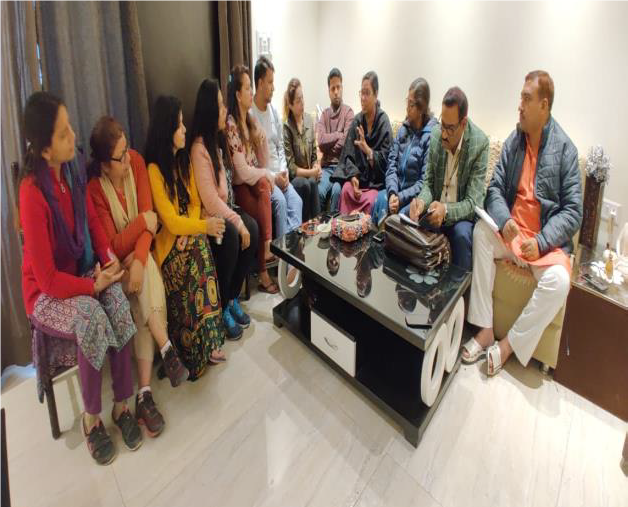
Before working on their reading, writing, and mathematical abilities, the school focused on enhancing the children’s life skills. They were put in leadership positions that developed confidence in them. Equal involvement in co-curricular activities made these children see eye to eye with their peers. Winning competitions and getting acknowledged for their efforts made them feel that they were an integral part of school, recalls Pandey.
School as a society
Pandey views each school as a miniature version of society, where children from diverse backgrounds interact. Ankit is a bright young boy with cerebral palsy and impaired motor abilities. He shares a cordial relationship with his friends that involves an interplay between their skills. Ankit’s friends help him write his notebooks and pack his bag while he helps them improve their reading skills. This way, their classroom evolves as a social ecosystem where students complement each other’s strengths. Classmates perceive a sense of responsibility towards Ankit and learn lessons on empathy every day. Ms. Deepmala believes these lessons will reflect in later stages as they grow up. After all, a child’s mind is like a field covered with wet mud. Whatever impressions are formed in childhood stay for the rest of the life.
As parents of differentially abled, people from rural areas are naturally apprehensive about how the world treats their children. Ms. Deepmala ensured this did not come in her way of making education accessible to all. She and her team counseled parents who hesitate to send their children to school. This is how she convinced Atul’s mother to enroll him in school. Initially, the woman doubted that her child would be sent to a distant special school. But when Atul began attending a regular school, he learned and performed beyond everyone’s expectations. He realized he was no different from his classmates, and the school had become a safe and secure space for him.
Miss Deepmala often exemplifies the case of Anmol, who couldn’t speak and suffered from intellectual disability. Upon his school admission, he was offered a wholesome atmosphere and was encouraged to participate in classroom activities with the help of special educators. Over time, Ms. Deepmala observed considerable improvement in Anmol’s abilities owing to the unique ways in which Anmol communicated with his teachers and classmates. With adequate help, he was demonstrating to the best of his capabilities. His attendance was at par with other students and the state government a scholarship of Rs. 5000/- for his performance.
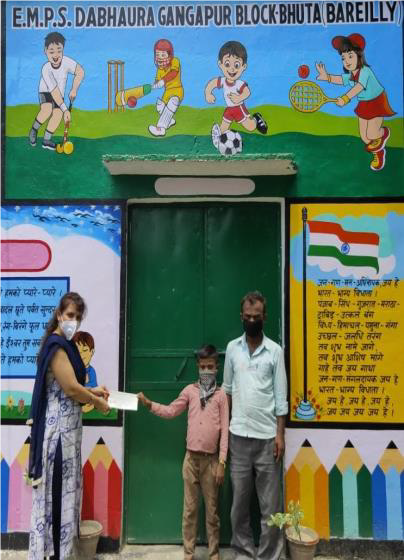
Her experiences with Anmol prompted Ms. Deepmala to share them with a close group of teachers from other schools. She noticed that other educators endured similar experiences. So the PLC was broadened, and the community was divided into blocks, each headed by a coordinator. This lead coordinator disseminated information about group activities and discussions to the teachers in a particular block and received feedback from them. Through constant engagement and dialogue, they addressed the barriers in their pursuit of blending special kids with mainstream students and devised ways to overcome them.
One Teacher, One call
As a deadly pandemic struck the world in 2020, everything came down to a halt. But Team Deepmala couldn’t afford to diminish their efforts. So with the help of social media, they launched a rigorous campaign called “One Teacher, One call,” which was built around the simple principle of networking. It meant each PLC member would motivate at least one other educator to join hands with the community. This functioned like a chain reaction that never terminated. Together they worked on two fronts. The foremost goal was to inspire and admit the maximum number of specially-abled children in their respective schools; the other was to arrange an embracive classroom space to avoid their dropout.
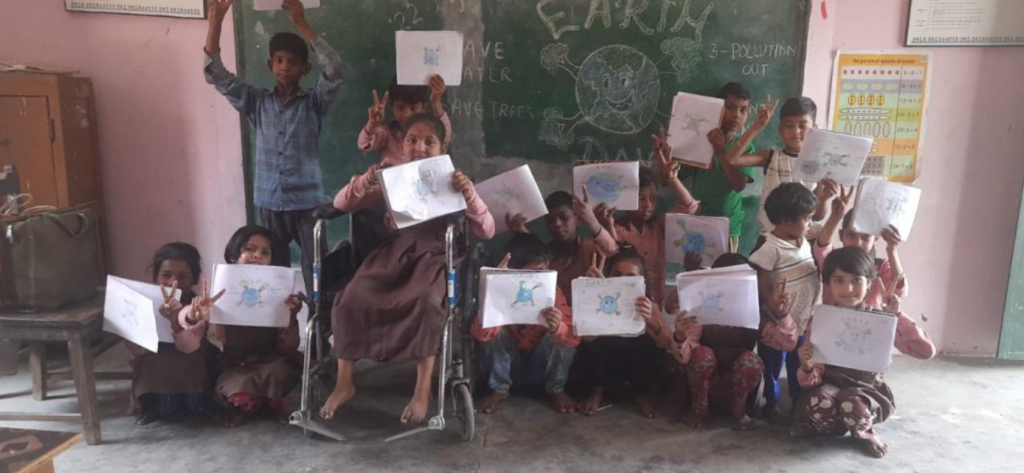
A total of 350 teachers have been connected through online meetups, live sessions, and webinars, and approximately 600 special students have been enrolled under the campaign.
Volunteering teachers worked beyond the call of duty. Supplementary classes were organized for special children inducted in ‘Mohalla classes.’ Because of a lack of online resources, they were also home tutored, and the entire affair was voiced through the social media handles of the campaign.
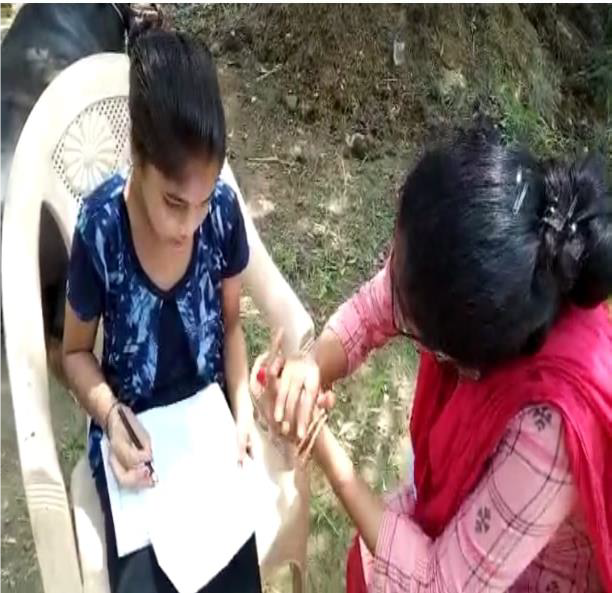
The proud moment
As the campaign gained momentum and reached the masses, Pandey’s efforts were applauded by the honourable PM of India in one of his speeches during the Mann ki Baat sessions. Having received this well-deserved token of appreciation from the Prime Minister, her team of teachers, counselors, and special educators have gathered support from many doctors, physiotherapists, and NGOs.
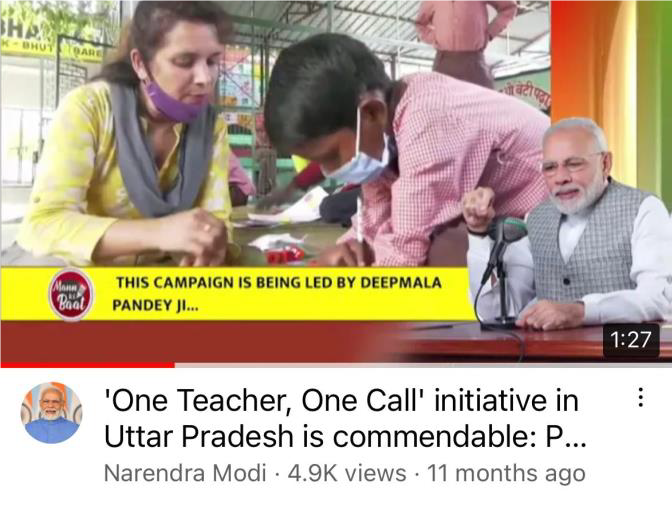
Together, the group has been focusing on rehabilitating students after admission. Workshops, certificate courses, and teacher training programs are being carried out on a mass level. Specialists are invited to deliver talks on managing children with specific disabilities. Having received enormous support for her endeavours, Ms. Deepmala now envisions pushing her movement to a national level.
The Right to Education, 2009 entitles barrier-free access to school for all children, including children with special needs. But equality in the eyes of the law is not enough. The goal should be to strive for equality in the eyes of society. “Inclusion is not a destiny that we have achieved; it is a journey that we have set off to.” comments Pandey. Over the past few years, She has become the eyes for those who can’t see, the hands for those who can’t write, and the voice for those who can’t speak.
Her passion for teaching and conviction towards the noble cause have demonstrated that disabled does not equate with incapable. Efforts are responded to when they are channelled in the right direction. We at SarkariSchool.in takes pride in educators like Deepmala Pandey, who have redefined education for children like Ankit and Atul.
Sarkari sabse Asarkari!
(With Rhythm)
Do like, comment and share the story. Also follow us on Facebook, Instagram and subscribe our YouTube channel.
All the stories are originally designed by team Sarkari School. Strict action will be taken against plagiarism.
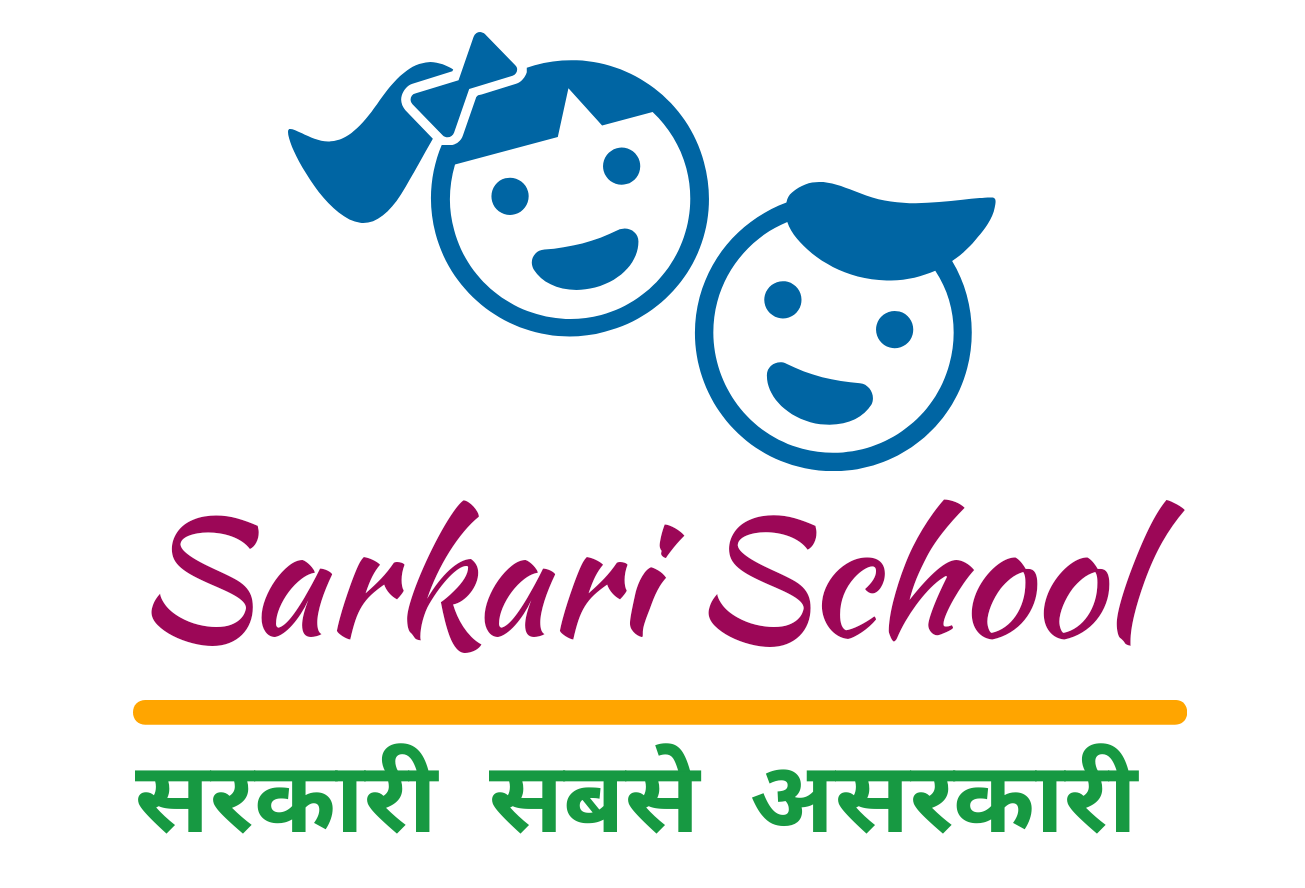
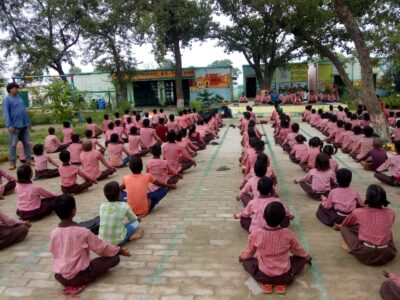
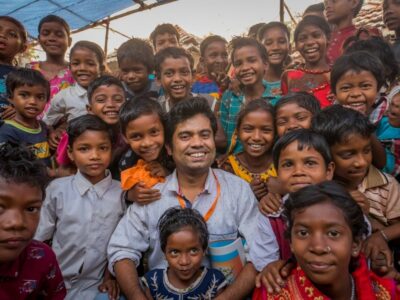
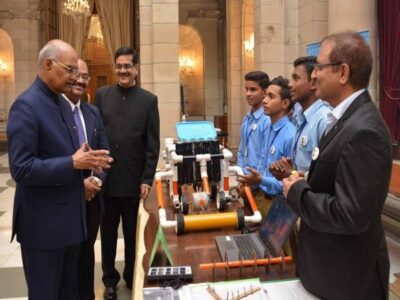
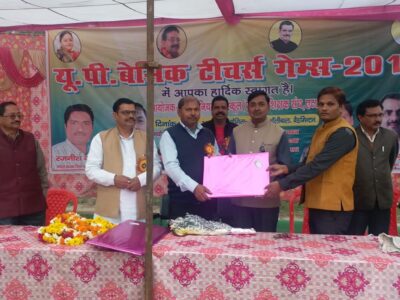
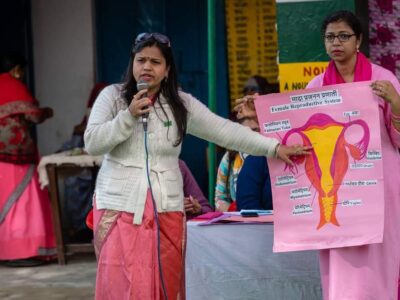
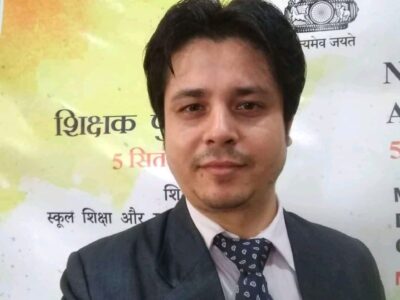
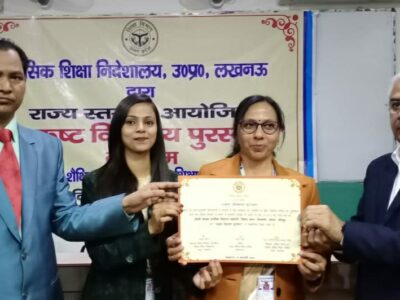
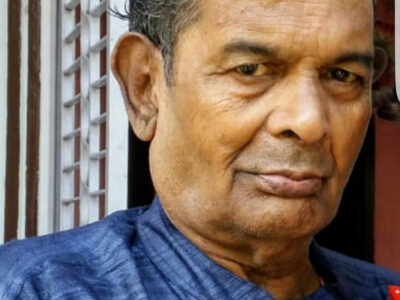
Has one comment to “Enabling the differently abled: The story of Deepmala Pandey”
Deepmala pandey - September 25, 2022
Thankyou sarkri school for sharing our story.very well composed.